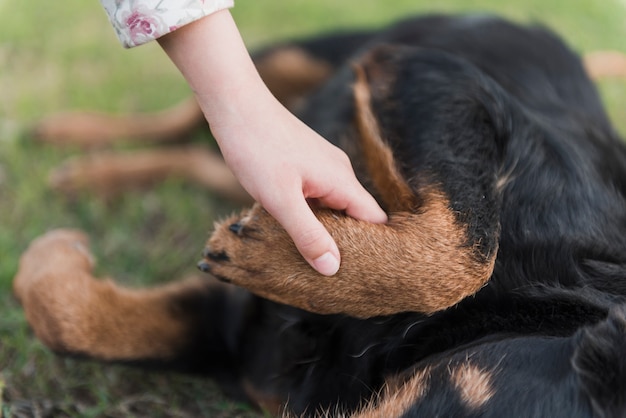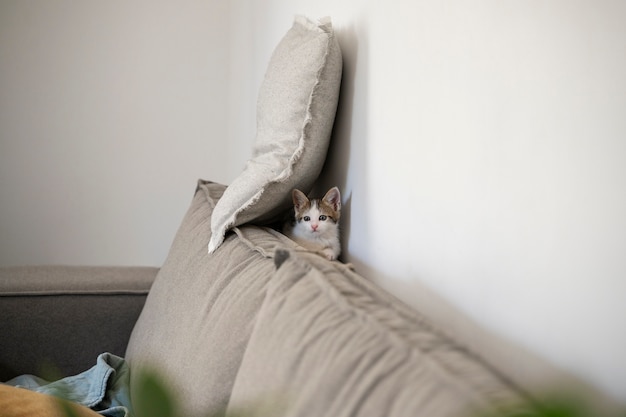What to Expect From Pet Orthopedic Surgery


What to Expect From Pet Orthopedic Surgery
When your pet is limping, in pain, or struggling to move comfortably, it is natural to feel concerned and want answers right away. Orthopedic issues, such as fractures, joint injuries, and chronic lameness, are not only uncomfortable for pets but can also impact their long-term quality of life if left untreated. At Gully Animal Hospital of Grand Prairie, located at 2942 West Camp Wisdom Rd, Grand Prairie, TX 75052, our veterinary team is dedicated to providing advanced pet orthopedic surgery and comprehensive aftercare to help your companion recover and thrive.
If you are searching for pet orthopedic surgery in Grand Prairie or wondering what to expect from the process, this blog will guide you through recognizing orthopedic problems, understanding their causes, exploring treatment options available at our hospital, and learning how to support your pet’s recovery at home. Whether your dog has suffered a sudden fracture or your cat is experiencing ongoing joint pain, our team is here to support you every step of the way. For those seeking a vet near me, Gully Animal Hospital is proud to serve Grand Prairie and surrounding communities with compassionate, expert care. To learn more about our advanced procedures for injuries like fractures in pets, you can review our orthopedic services for pets for additional information.
How to Recognize Orthopedic Problems in Pets
As a pet owner, you may first notice subtle changes in your pet’s movement or behavior that signal an orthopedic issue. Difficulty standing up, limping, reluctance to jump, or a sudden inability to bear weight on a limb are often early indicators. Other symptoms include swelling around a joint, yelping or vocalizing when touched, visible deformity, or an obvious wound. For example, a dog that suddenly refuses to climb stairs after playing outside, or a cat that starts hiding more often and hesitates to jump onto a favorite perch, may be experiencing discomfort from an orthopedic condition.
Fractures in pets can present dramatically, sometimes with an audible snap or immediate inability to use a limb. However, less severe injuries or chronic issues like patellar luxation or ligament tears may develop gradually, with symptoms like intermittent limping, stiffness after rest, or behavioral changes due to pain. If you observe any of these signs, it’s important to schedule an appointment with a veterinarian near me for a thorough assessment, as early intervention can often mean a smoother recovery.
Understanding the Causes of Orthopedic Injuries and Conditions
Orthopedic problems in pets arise from a range of causes, each requiring a tailored approach to diagnosis and treatment. Traumatic incidents such as being struck by a car, rough play, or falls can result in fractures, dislocations, or ligament injuries. In other cases, chronic wear and tear from age, obesity, or breed-specific predispositions can lead to degenerative joint diseases or conditions like patellar luxation and cruciate ligament tears.
Certain breeds are prone to specific orthopedic challenges; for example, small dogs may be more likely to develop luxating patellas, while large, active breeds often face cruciate ligament injuries. Age is another contributing factor, as older pets are more susceptible to osteoarthritis and degenerative changes in their joints. Additionally, nutritional imbalances, improper exercise, and congenital abnormalities can further increase the risk of orthopedic problems.
If you’re seeking veterinary services near me that address both acute injuries and chronic conditions, our team at Gully Animal Hospital in Grand Prairie uses advanced diagnostics and individualized care plans to pinpoint the underlying cause and determine the most effective treatment for your pet.
What Happens During Pet Orthopedic Surgery and Recovery
When your pet is diagnosed with an orthopedic condition that requires surgery, understanding the process can help ease your worries and prepare you for what lies ahead. At Gully Animal Hospital of Grand Prairie, we offer a range of advanced pet orthopedic surgery options, including fracture repair, patellar luxation correction, cranial cruciate ligament (CCL) repair, and femoral head ostectomy (FHO) for severe hip conditions.
The Surgical Process
The treatment journey begins with a comprehensive examination and diagnostic imaging, such as digital radiology or ultrasound, to evaluate the extent of the injury. Our veterinary team will review the results with you, explain the recommended procedure, and answer any questions you may have. For example, if your dog has a fractured limb, we may recommend treatment of pet fractures and joint dislocations to restore mobility and reduce pain. For pets with patellar luxation, patellar luxation surgery for pets may be necessary to correct the alignment and prevent future complications.
During surgery, your pet is carefully monitored under anesthesia for comfort and safety. Our veterinary professionals use specialized techniques and equipment tailored to the specific injury, ensuring precise repair and optimal outcomes. After the procedure, pets are closely observed as they wake up, and pain management plans are initiated right away to keep them as comfortable as possible.
Recovery and Aftercare
The recovery period following pet orthopedic surgery varies depending on the procedure and your pet’s overall health. Most pets require a period of restricted activity, sometimes with crate rest or limited movement, to allow the surgical site to heal. Your veterinarian will provide clear instructions on managing your pet’s recovery at home, including how to administer medications, monitor the incision, and gradually reintroduce activity.
Pain management is a critical part of the recovery process, helping pets heal more comfortably and reducing the risk of complications. Our pain management services for pets recovering from surgery are customized for each patient, and our veterinary team is always available to address concerns or adjust the plan as needed.
Physical therapy exercises or rehabilitation may also be recommended to restore strength and flexibility. Throughout the recovery journey, follow-up visits allow us to monitor progress and ensure your pet is healing as expected. For those searching for quality vet near me options, our hospital delivers support and guidance from the first appointment through full recovery.
Supporting Your Pet at Home: Prevention and Home Care Tips
While some orthopedic injuries are unavoidable, there are steps you can take to help prevent common musculoskeletal problems and support your pet’s long-term mobility. Regular veterinary checkups, weight management, and age-appropriate exercise all play a crucial role in reducing the risk of injuries and chronic joint disease. For example, maintaining a healthy weight reduces strain on your pet’s joints, while controlled play and low-impact activities can strengthen muscles and improve coordination.
If your pet has already undergone orthopedic surgery, strict adherence to your veterinarian’s post-operative instructions is essential. This includes confining your pet as advised, administering all prescribed medications, and monitoring for any signs of complications such as swelling, redness, or discharge from the incision. Gradually reintroducing gentle activity, providing a soft and supportive resting area, and using ramps or steps where needed can make recovery easier for your companion.
Seeking out pet orthopedic surgery in Grand Prairie or looking for veterinary services near me ensures your pet has access to local expertise and ongoing care. Our veterinary professionals are always ready to answer questions about at-home care or to provide additional resources for rehabilitation and pain management.
When to Seek Veterinary Care for Orthopedic Issues
Knowing when to contact your veterinarian can make a significant difference in your pet’s outcome. Immediate evaluation is recommended if your pet is unable to bear weight on a limb, experiences severe pain, or has visible deformity or open wounds. Other urgent signs include excessive swelling, rapid onset of lameness, or signs of distress such as persistent whimpering or panting.
Even if your pet’s symptoms seem mild or intermittent, persistent limping, reluctance to move, or ongoing discomfort should prompt a visit to your veterinarian near me. Early intervention for fractures in pets or joint injuries often leads to better recovery and can prevent the development of chronic pain or mobility issues. If you are ever unsure whether your pet’s issue is an emergency, our veterinary team at Gully Animal Hospital of Grand Prairie is always available to provide guidance and schedule a prompt evaluation.
Your Partner for Pet Orthopedic Surgery in Grand Prairie
Orthopedic problems can be stressful for both pets and their families, but with expert veterinary care and a supportive team, most pets can return to a happy, active life. At Gully Animal Hospital of Grand Prairie, our veterinarians are committed to delivering advanced pet orthopedic surgery, personalized recovery plans, and compassionate support for every patient. Whether your pet needs fracture repair, patellar luxation correction, or chronic pain management, we are here to help you navigate every step of the process.
If you notice changes in your pet’s mobility or suspect an orthopedic problem, do not hesitate to reach out. Schedule an appointment with our veterinary team today by calling (214) 412-2462 or visiting our hospital at 2942 West Camp Wisdom Rd, Grand Prairie, TX 75052. For more details on our surgical expertise, explore our veterinary surgery services.
Choosing the best vet near me is about more than convenience; it is about finding a trusted partner for your pet’s health. Let our veterinary professionals in Grand Prairie and the surrounding communities help your companion move comfortably again with quality pet orthopedic surgery in Grand Prairie. Your pet’s health and happiness are always our highest priority.
This blog is intended for informational purposes only and should not be used as a substitute for professional veterinary advice. Always consult your veterinarian for specific concerns regarding your pet’s health or before pursuing any treatment for orthopedic issues. For urgent or emergency situations, seek veterinary care immediately. For additional resources on pet orthopedic surgery and musculoskeletal health, see the American College of Veterinary Surgeons (https://www.acvs.org/small-animal/orthopedic-surgery).



















